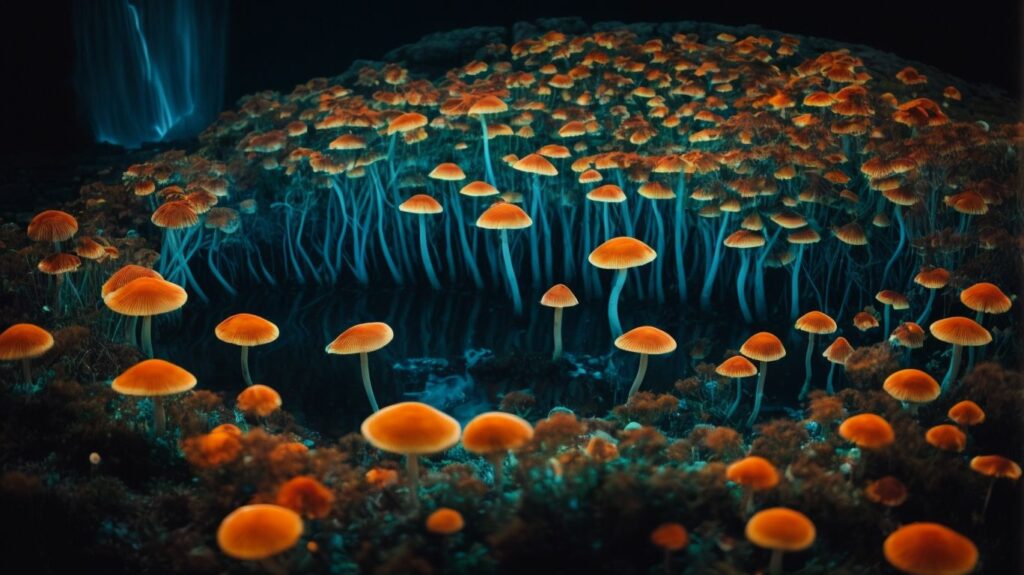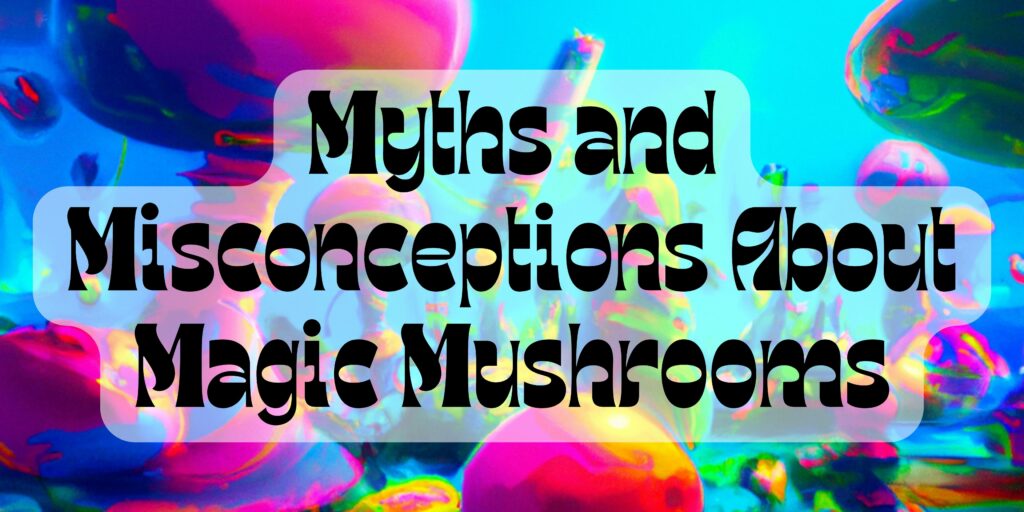Hey fellow adventurer, are you curious about the effects of shrooms? Look no further, as this article dives into the potential dangers of consuming shrooms and the impact it can have on your mind and body. Don’t let ignorance lead you down a dangerous path. Read on to educate yourself.
What Are Shrooms?
Shrooms, also known as magic mushrooms or psilocybin mushrooms, are a type of psychedelic fungi that contain the hallucinogenic compound psilocybin. These mushrooms are often consumed for their mind-altering effects, such as visual and auditory hallucinations, euphoria, and a distorted perception of time and space. While shrooms have a long history of traditional and recreational use in various cultures, it is important to understand that they can also have potential risks and negative effects, including adverse psychological reactions and dangerous behavior. Therefore, it is crucial to educate oneself about the effects and potential risks of shrooms before making the decision to use them.
What Are The Different Types of Shrooms?
There are various types of mushrooms, commonly referred to as shrooms, each possessing unique characteristics. Some popular varieties include Psilocybe cubensis, also known as “magic mushrooms,” which are known for their psychoactive properties and are often used for recreational purposes. Another type is Amanita muscaria, recognized for its distinct red and white appearance and hallucinogenic effects. Additional types include Psilocybe semilanceata, also known as “liberty caps,” and Psilocybe azurescens, considered one of the most potent strains of shrooms.
It is important to note that consuming any type of mushrooms should be approached with caution, as they can have both short-term and long-term effects on the brain and overall health. If you are considering trying shrooms, it is recommended to thoroughly research the specific type you are interested in and consult with a healthcare professional for guidance.
Shrooms may make you see unicorns, but they also affect your brain in ways that can lead to long-term consequences. Are you ready for a psychedelic ride?
How Do Shrooms Affect the Brain?
Psilocybin mushrooms, commonly known as “shrooms,” can have significant effects on the brain. Here are some ways in which shrooms impact the brain:
- Increased connectivity: Shrooms can enhance communication between brain regions through the active compound psilocybin.
- Altered perception: Shrooms can induce hallucinations, distort sensory experiences, and create a sense of euphoria.
- Neuroplasticity: Research suggests that psilocybin may promote neuroplasticity, potentially aiding in treating mental health conditions.
- Increased serotonin levels: By binding to serotonin receptors, psilocybin can lead to an increase in serotonin levels, which can influence mood and cognition.
While shrooms may have potential benefits, it’s important to approach them with caution. Always consult with a healthcare professional and consider the legal and safety aspects before using any substances.
What Are the Short-term Effects of Shrooms?
The short-term effects of shrooms can vary from person to person. Common short-term effects include:
- hallucinations
- changes in perception of time and space
- altered mood
- intense emotions
These effects typically start within 20-60 minutes after ingestion and can last for about 6-8 hours. Some individuals may also experience physical effects like increased heart rate, nausea, and muscle weakness. It’s important to note that the intensity and duration of these effects depend on factors such as dosage, individual tolerance, and the environment in which the shrooms are consumed. It is strongly advised to consume shrooms in a controlled and safe environment with trusted individuals to minimize any potential risks or negative experiences. So, what are the short-term effects of shrooms?
What Are the Long-term Effects of Shrooms?
The long-term effects of shrooms can vary depending on various factors, such as dosage, frequency of use, and individual susceptibility. While there is limited research on this topic, potential long-term effects may include persistent changes in perception, mood, and cognition. Some individuals may also experience flashbacks, which are known as hallucinogen persisting perception disorder (HPPD). Furthermore, prolonged and heavy use of shrooms may contribute to the development or worsening of underlying mental health conditions.
It is important to note that individual experiences and effects may vary, and more research is necessary to fully understand the long-term consequences of shroom usage.
Don’t be a fun-guy and underestimate the potential risks of shroom consumption – it’s not all rainbows and unicorns.
What Are the Risks and Dangers of Shrooms?
Using shrooms, also known as psilocybin mushrooms, can be risky and dangerous if not used responsibly. Some potential risks include:
- Bad trips: Shrooms can cause intense hallucinations, leading to feelings of anxiety, panic, and confusion.
- Psychological effects: Individuals with a history of mental health issues may experience worsened symptoms or trigger underlying conditions.
- Physical side effects: Nausea, vomiting, increased heart rate, and dilated pupils are common physical reactions to shrooms.
- Accidental ingestion: Mistaking poisonous mushrooms for psilocybin mushrooms can result in severe illness or even death.
True story: A friend once took shrooms without proper knowledge or supervision and had a terrifying experience. They became overwhelmed by fear and paranoia, and it took several hours for the effects to wear off. This experience had a lasting impact on their mental well-being and serves as a reminder of the importance of understanding the risks and approaching psychedelics with caution.
Can Shrooms Cause Addiction?
Yes, shrooms can potentially lead to addiction. While the psychoactive compound psilocybin found in shrooms is not physically addictive, it can still result in psychological dependence. The euphoric and hallucinogenic effects of shrooms can be alluring, and some individuals may develop cravings and a desire to frequently use them. This can lead to tolerance, requiring higher doses to achieve the desired effects. Consistent and excessive use of shrooms can also have negative impacts on mental health and overall well-being. It is important to be mindful of the potential for addiction when using shrooms and to use them responsibly and in moderation.
Mental health issues aren’t exactly a common side effect, but then again, neither is taking shrooms in the first place. Proceed with caution, folks.
Can Shrooms Cause Mental Health Issues?
Shrooms have the potential to induce mental health issues in certain individuals. Although the exact mechanisms are not completely understood, studies indicate that the psychedelic effects of shrooms can worsen or activate underlying mental health conditions, including anxiety, depression, or psychosis. This risk is especially elevated for those with a family history of mental illness or a predisposition to such disorders. It is important to approach shroom use with caution and to be mindful of the potential risks involved. If you have a history of mental health issues, it is recommended to refrain from using shrooms altogether.
Can Shrooms Cause Physical Health Problems?
Yes, consuming shrooms can potentially lead to physical health problems if not used responsibly. Some potential physical health issues include:
- Digestive Disturbances: Shrooms can cause nausea, vomiting, and stomach discomfort due to their effects on the digestive system.
- Elevated Heart Rate: The active compound in shrooms, psilocybin, can increase heart rate and blood pressure, which may be problematic for individuals with pre-existing cardiovascular conditions.
- Accidental Injury: Shrooms can impair coordination and perception, increasing the risk of accidents and injuries, especially if consumed in unsafe environments.
- Allergic Reactions: Some individuals may experience allergic reactions to mushrooms, resulting in symptoms such as rashes, itching, or difficulty breathing.
To minimize the potential physical health risks, it is crucial to consume shrooms in a safe and controlled environment, with proper dosage and supervision. Consulting a healthcare professional before usage is highly recommended.
How to Consume Shrooms Safely?
When consuming shrooms, it’s important to prioritize safety to minimize risks and ensure a positive experience. Follow these steps to consume shrooms safely:
- Research: Educate yourself about the effects, dosage, and potential risks associated with shrooms.
- Set and setting: Choose a comfortable and familiar environment where you feel safe and relaxed.
- Start with a low dose: Begin with a small amount to gauge your body’s reaction and sensitivity.
- Have a trip sitter: Have a trusted friend present to provide support and assistance if needed.
- Stay hydrated: Drink water throughout your trip to stay hydrated.
- Prepare mentally: Approach the experience with a positive mindset and clear intentions.
- Integrate the experience: Reflect on and integrate the insights and emotions that arise from the trip.
Pro-tip: Remember to always prioritize your safety and well-being. If you have any concerns or questions, consult with a healthcare professional.
What Are the Legal Implications of Shroom Use?
The legal implications of using shrooms can vary depending on the jurisdiction. While some countries have decriminalized or legalized psilocybin mushrooms, others still consider them illegal.
In the United States, for example, psilocybin is classified as a Schedule I controlled substance, meaning it is illegal to possess, cultivate, or distribute. However, there are efforts underway to change these laws, with some cities in the US decriminalizing the possession and use of psilocybin mushrooms.
It is important to research and understand the specific laws and regulations regarding shroom use in your area to avoid any legal issues.
What Are the Alternatives to Shrooms for Similar Effects?
When searching for substitutes for shrooms that produce similar effects, there are several options to explore. One possibility is LSD, which is known to create comparable hallucinogenic experiences. Another choice is DMT, which is renowned for its powerful visual effects. Peyote and Ayahuasca are also common alternatives that can lead to a spiritual journey. However, it is important to recognize that these substances may also carry potential risks and side effects. Ultimately, it is crucial to thoroughly research and understand the effects and risks of any substance before deciding to try it.
Frequently Asked Questions
Are shrooms bad for you?
Yes, shrooms, also known as magic mushrooms, can be harmful to your health if used improperly or in excess.
What are the potential risks of consuming shrooms?
Some potential risks of consuming shrooms include hallucinations, increased heart rate and blood pressure, nausea, vomiting, and panic attacks. In rare cases, shrooms can also lead to long-term psychological effects.
Are there any health benefits of shrooms?
While shrooms are often associated with recreational use, they have also been studied for potential therapeutic benefits. Some evidence suggests that shrooms may have positive effects on mental health, including treating depression and anxiety.
How can I safely consume shrooms?
It is important to only consume shrooms from a trusted source and in a safe environment. Start with a low dose and be aware of potential interactions with any medication you may be taking. Always have a sober and trusted friend present while using shrooms.
Can I become addicted to shrooms?
Shrooms are not considered physically addictive, but some people may develop a psychological dependence on them. Regular use can also lead to tolerance, meaning higher doses may be needed for the same effects.
Are there any legal implications of using shrooms?
The legality of shrooms varies by country and state. In many places, they are considered a controlled substance and possessing or using them can result in legal consequences. It is important to research and understand the laws in your area before using shrooms.




